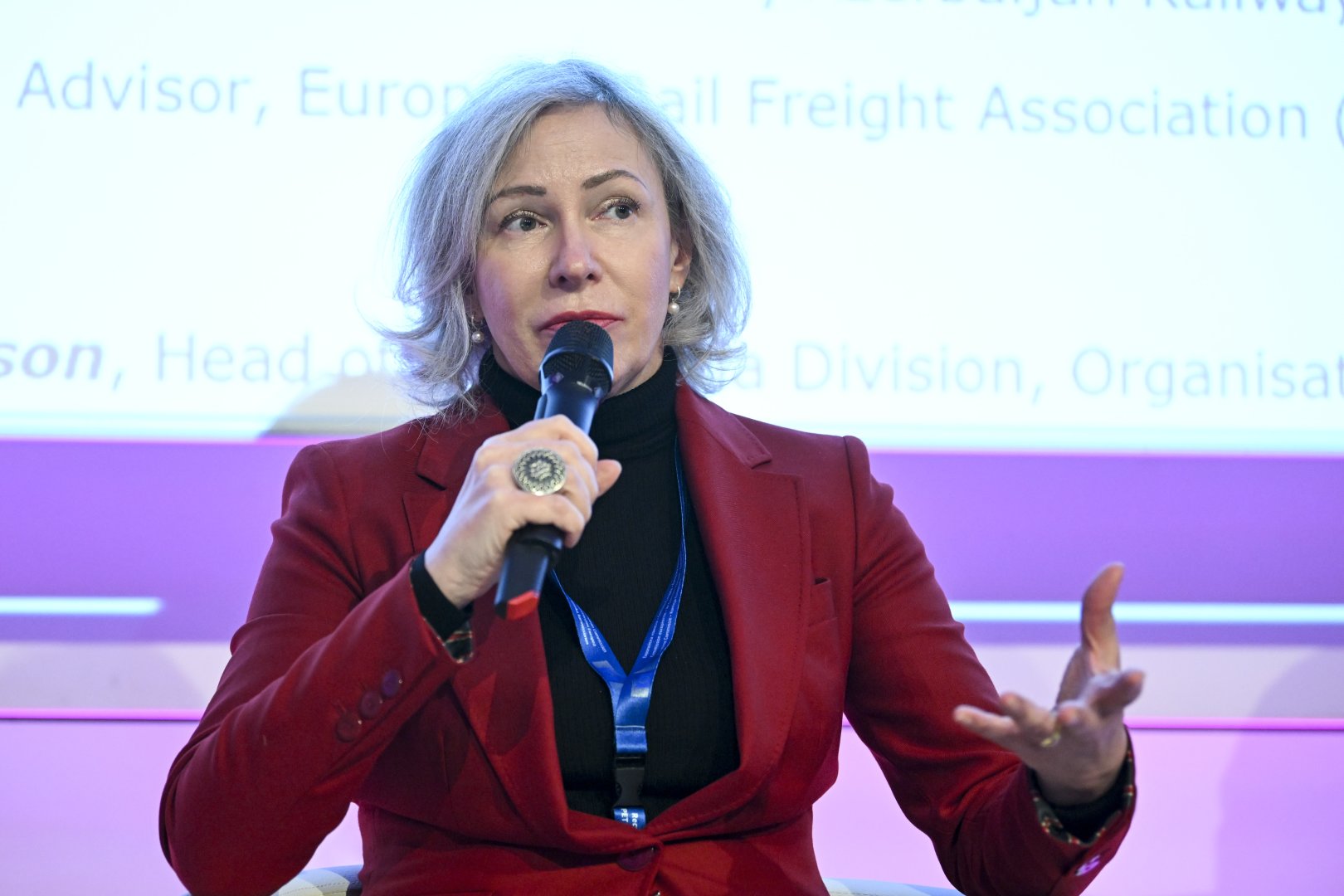BAKU, Azerbaijan, November 28. The International Road Transport Union (IRU) is expanding its technical cooperation with Iran to improve the efficiency, security, and sustainability of road transport, IRU TIR and Transit Director Tatiana Rey-Bellet told Trend in an exclusive interview.
"IRU works very closely with countries in the Economic Cooperation Organization (ECO) region, including Iran, to make transport and transit more efficient, secure, and sustainable," Rey-Bellet said. She noted that the union, together with ECO, has developed an action plan targeting several key areas, including the digitalization of customs and transport procedures, the facilitation of border-crossing processes, the enhancement of regional corridors, and the improvement of road safety through training and certification.
As part of these efforts, IRU has launched the CPC Manager project in Iran. "This program for passenger and goods transport provides internationally recognised standards, training methodology and best practices for road transport managers to run safe, efficient and sustainable operations," Rey-Bellet said. She added that IRU is working to extend training to professional commercial drivers in the country.
On the use of the TIR system, Rey-Bellet said the ECO region is a major contributor, accounting for over 70% of TIR carnets issued globally.
"Uzbekistan, Iran, and Türkiye are the world’s top issuers of TIR carnets," she said. TIR carnets, which facilitate international trucking with enhanced efficiency and security, are widely used for transit along both East-West and North-South corridors in the region.
IRU flags border bottlenecks, calls for wider TIR use
She further noted that the IRU highlights procedural and customs barriers at Iranian borders as key constraints on transit, while urging broader implementation of its TIR system to ease congestion.
"Our recent border visits - Bazargan (Iran–Türkiye), Astara and Bilesavar (Iran-Azerbaijan) - focused on identifying potential areas for improvement through the tried-and-tested TIR system," Rey-Bellet said.
One major issue identified is the limited capacity of neighbouring countries to process trucks, she said. "Low-risk transport must wait for procedures to be completed for high-risk cargo, creating congestion at borders - both on exit and entry".
The IRU director suggested that risk-management tools, such as TIR’s advance cargo information system (TIR-EPD), could help distinguish between low- and high-risk transports and channel them accordingly. "Under TIR, all customs formalities are performed at departure and destination, and customs authorities do not need to physically inspect goods at borders. If TIR provisions are fully implemented, border-crossing volumes could be significantly increased," she added.
During the visits, officials agreed to prioritise TIR by establishing Green Lanes for trucks and expanding access to TIR carnets for operators and drivers. Rey-Bellet noted that challenges remain in TIR implementation, with plans to organise capacity-building activities for relevant stakeholders through IRU associations and local branches.
IRU urges support for direct cross-border transport
She pointed out that the IRU sees road transport and the TIR system as central to connecting Iran’s maritime gateways with the Caspian region, the Caucasus, and onward to Europe, while helping operators navigate sanctions-related complications.
"Our key priority with TIR is to reduce transport and border-crossing times while enhancing security," Rey-Bellet said. She noted that port procedures must be aligned with business needs. "If trade partners prefer to transship goods at ports and transport them directly to the final destination across borders without further transshipment, this choice should be supported by legislation and procedures".
Rey-Bellet said IRU is working with ECO and TRACECA to test East-West and North-South routes and to identify challenges and opportunities to create viable transportation options for secure trade. She added that IRU’s main focus with UNECE and other regional bodies in the coming months is to support the region’s rapid transition to eTIR.
On the impact of sanctions, she said restrictions complicate banking, insurance and guarantee arrangements, but they do not prohibit international transit. In fact, under Article 11 of the WTO TFA, countries must ensure freedom of transit.
She said the TIR system offers a secure framework for moving goods through Iran to neighbouring Central Asian states, helping operators maintain trade continuity. "TIR ensures full transparency on the start and end points of each transport, guaranteeing that goods remain sealed and are delivered intact to their final destination, with no commercial transactions occurring during transit".
Rey-Bellet added that operators ultimately choose the most suitable routes, but alternatives often face constraints. "Pakistan’s borders with Afghanistan remain closed. In this context, Iran continues to serve as a practical and viable transit option for sustaining regional and global trade flows," she said.







